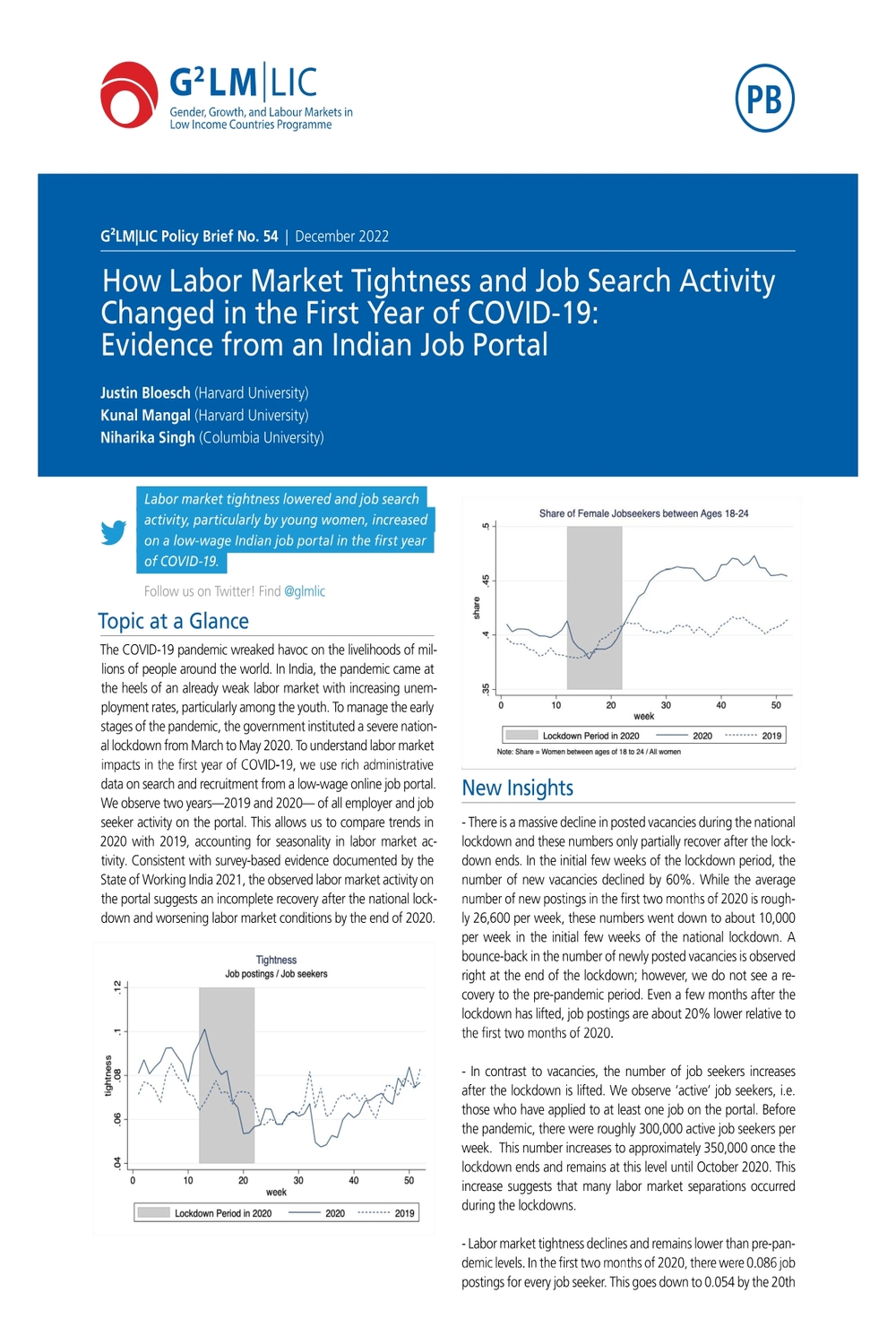The COVID-19 pandemic wreaked havoc on the livelihoods of millions of people around the world. In India, the pandemic came at the heels of an already weak labor market with increasing unemployment rates, particularly among the youth. To manage the early stages of the pandemic, the government instituted a severe national lockdown from March to May 2020. To understand labor market impacts in the first year of COVID-19, we use rich administrative data on search and recruitment from a low-wage online job portal. We observe two years—2019 and 2020— of all employer and job seeker activity on the portal. This allows us to compare trends in 2020 with 2019, accounting for seasonality in labor market activity. Consistent with survey-based evidence documented by the State of Working India 2021, the observed labor market activity on the portal suggests an incomplete recovery after the national lockdown and worsening labor market conditions by the end of 2020.
